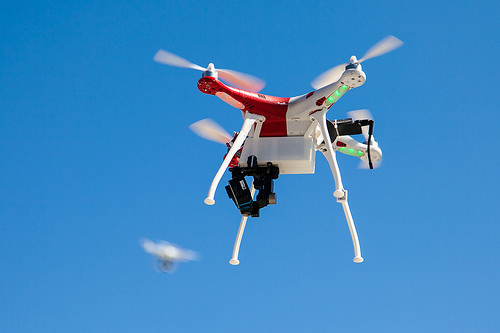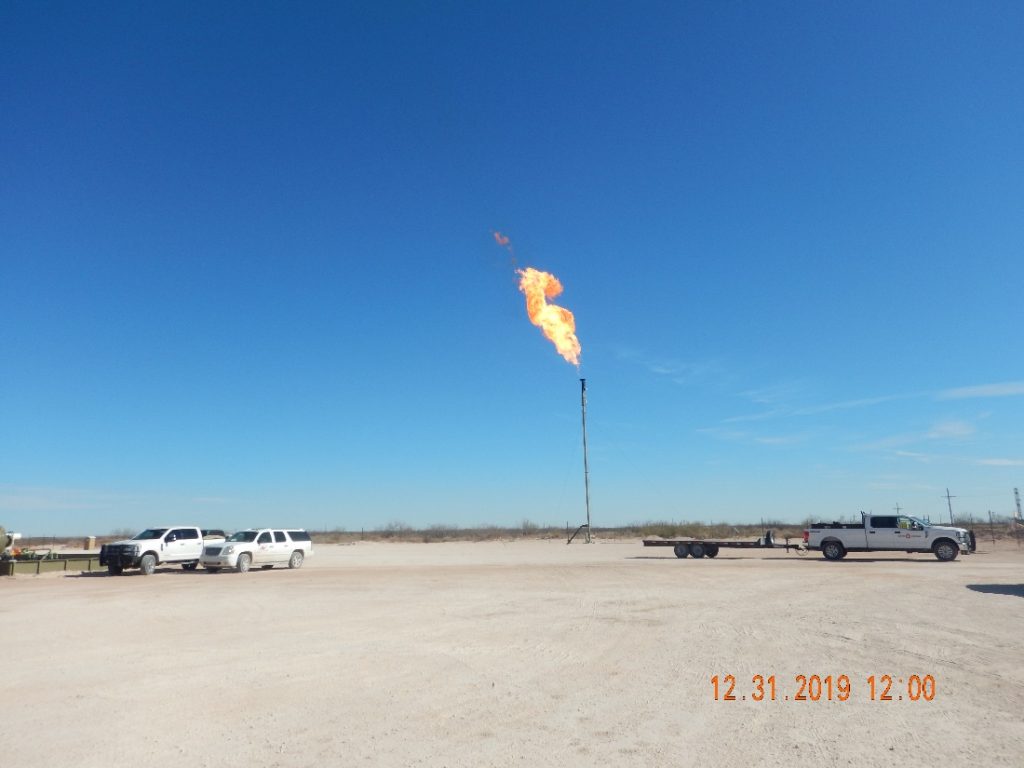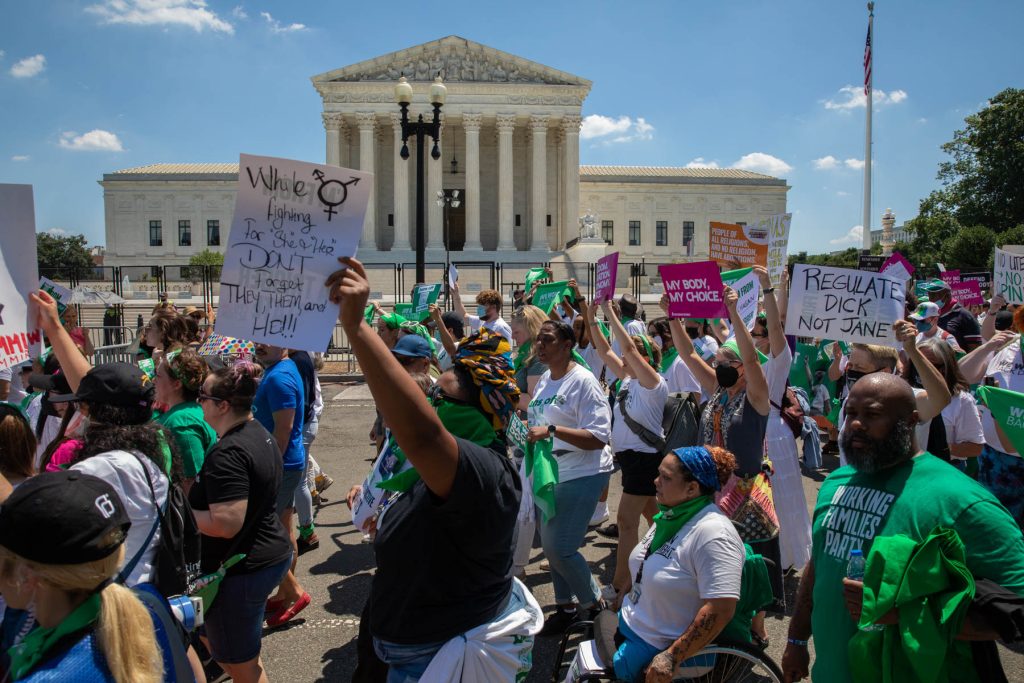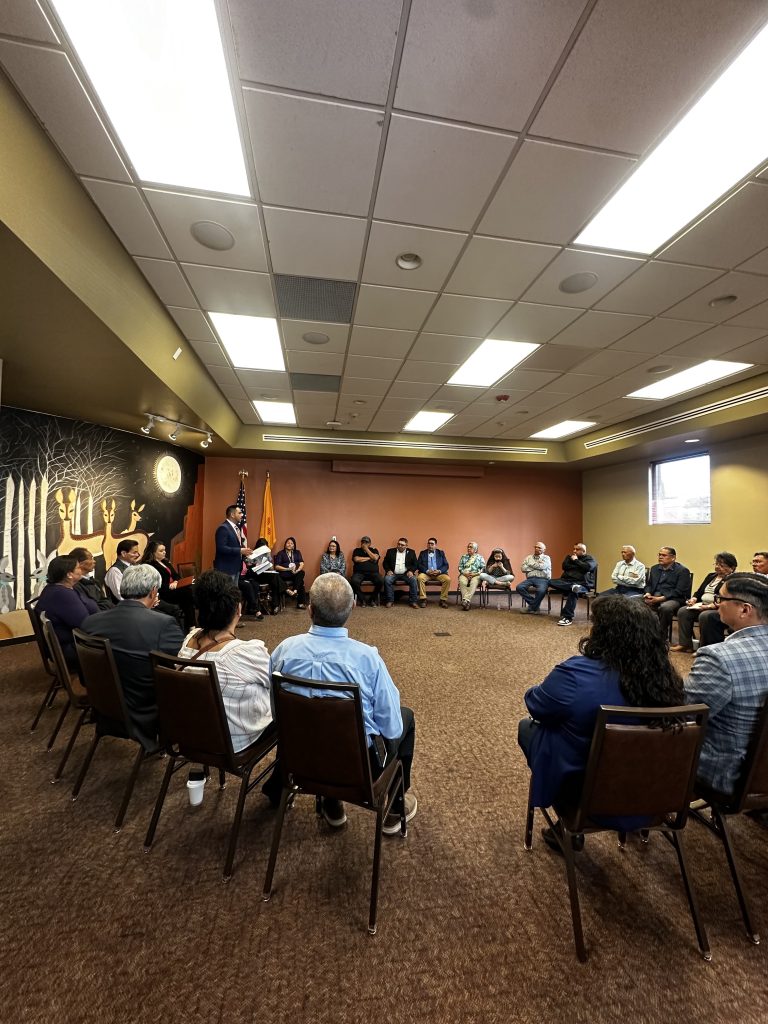New Mexico legislators are joining the conversation on drones and discussing the devices’ role in the state.
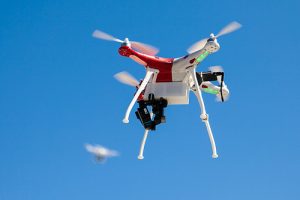
The interim Science, Technology & Telecommunications Committee heard a presentation on Monday about the use of drones in New Mexico.
Present at the meeting was Rep. Bill McCamley, D-Mesilla Park. McCamley, a supporter of Science Technology Engineering and Mathematics (STEM) programs, told New Mexico Political Report that he would like to see more legislation that outlines how and when drones can be used for personal use.
Currently, the Federal Aviation Administration prohibits the commercial use of drones without an FAA approved pilot’s license. While McCamley said he probably won’t introduce a bill himself, he fully supports clearer laws on drone use.
“If I were a drone operator, I would want some legitimacy,” McCamley said, referring to ambiguous laws on where drones can be flown.
At the very least, McCamley said, there should be more regulations for tracking drones in the name of public safety.
“I would absolutely support legislation that would require these things to be registered,” he said.
During the 2015 legislative session, there was a handful of bills and memorials that addressed the use of drones. Those pieces of legislation ranged from addressing privacy issues to bans on using drones for hunting.The House and Senate each passed memorials related to drones. The memorials urged New Mexico wildlife agencies to stay up to date with drone technologies for monitoring purposes.
On Monday the FAA placed restrictions on areas of Washington D.C. where Pope Francis would be visiting, calling the areas “no drone zones.”
As prices drop, drones are increasingly seen in the headlines. Earlier this year, CBS reported that drones sometimes interfere with attempts at battling wildfires.
Recently the Columbia Journalism Review wrote about a journalism professor who is working on getting proper credentials in order to teach students about reporting using drones. Two years ago, the instructor’s class was canceled when the FAA sent him an order to immediately stop flying drones for class.
Students at the lab, one of the first programs of its kind in the US, used an unmanned aerial vehicle to get a bird’s-eye view of drought conditions along the Platte River in Nebraska in 2012, demonstrating the potential value of drones for journalists. But the following year, Waite received a cease-and-desist order from the FAA, stating that the school was not authorized to fly drones for any purpose while the agency’s rule-making for drone use was pending.
The upcoming legislative session is a 30-day session focused on the budget. Non-budget legislation, not including memorials or constitutional amendments, would need to be put on the call by Gov. Susana Martinez to be considered.

